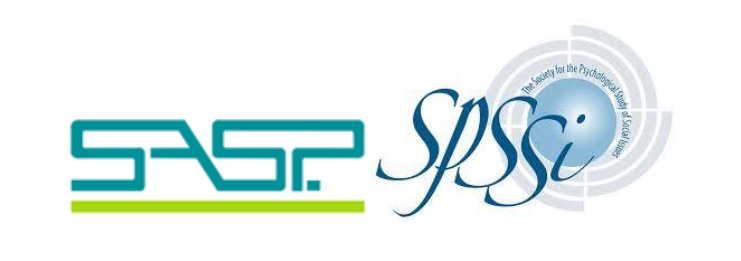The 2019 SPSSI-SASP Group Meeting on Intergroup Contact will bring together researchers interested in intergroup dynamics, intergroup contact, and social cohesion from around the world and of differing experiences and seniority. We thought it made sense to set up a mentorship program to help attendees take full advantage of this great opportunity for research networking and mentorship. Hence, we suggest an informal program of semi-structured opportunities for one-to-one interactions between one mentor and one mentee that can work with your autonomy and time-commitments.
If for some reason you have changed your mind about your participation in the program (please check your submission form for details) or would like to ensure you are participating, please email by the 30th of March and let us know. If we don’t hear from you, we will assume that you would like to stick to your original decision that was included in your abstract. If you did not submit an abstract and will be attending the conference, you can also send an email to indicate your interest in participating in the mentorship program.
Objectives
The primary objective of this mentorship program is to facilitate international and interstate connections between junior and senior intergroup contact researchers that potentially extend beyond the intergroup contact conference in Newcastle.
How It Works
In the lead up to the conference, attendees who have expressed an interest in the program will be paired in a mentor-mentee pairing. One junior researcher will be paired with one more senior researcher based on key considerations: (1) the similarity of the area of research (as presented at the conference), (2) sufficient difference in seniority between the mentor and mentee, and (3) geographical distance between institutional affiliations to maximise cross-pollination.
Both members of the pair will receive an email informing them of their pairing a few weeks in advance of the conference. To get the most out of the program, we think it would be great if the pair (1) emailed or Skyped each other before the conference to come up with a plan to identify each other at the meet-and-greet session and make plans for the mentor-mentee breakfast, (2) participated in a mentor-mentee breakfast, which is included in the conference schedule, (3) freely took advantage of other informal “chat times” during the conference, and (4) had some follow-up communication post-conference. Of course, it is up to the pair to find out what is doable and how deep and broad they want to go.
Below we provide some informal probes for these opportunities for mentor-mentee contact.
Opportunities for Contact
(1) Email before the conference
Meeting at the conference might be more anxiety-free if you have already had a conversation over email or Skype. When you are informed of your pairing, the mentor should get in touch with the mentee to (a) propose a method for finding and identifying each other at the meet-and-greet cocktail night and (b) plan for your one-on-one breakfast.
(2) During the conference
Each pair will decide how much time they would like to spend on their mentorship relationship during the conference. There are a few good opportunities embedded in the conference program:
- Meet and Greet Session on Monday/first night ~1hr
- The first day will most likely conclude with a meet and greet for all delegates. This will be an opportunity to meet and mingle with all of the conference attendees, and so it’s a perfect opportunity for an initial introduction to your mentee/mentor.
- Mentor-Mentee Breakfast: Tuesday morning/second day ~1hr
- Breakfast on the second day of the conference may allow for quieter, more in-depth discussions than a cocktail party! Make arrangements with your mentor/mentee about where to hold this. The conference program will have a designated timeslot but no location.
- Coffee/Tea Breaks and Other Informal Chat times.
- Without “binge-meeting”, feel free to catch up any other time.
Some topics that might help break the ice and get you started on your mentorship relationship include:
- What is your broad area of interest?
- You could share a recent publication or provide a brief summary of recent work (e.g., thesis topic or current main focus of research).
- Where are you at in your career?
- What do you spend most of your time doing? How did you get there? What do you want to be doing in the future?
- What do you hope to get out of this program?
- These may include seeking potential collaborations, helping the next generation of students or supervisors, or simply wanting stimulating conversation during morning tea or some travel tips!
(3) After the conference
Perhaps agree together whether and how to follow up these chats in the future (e.g., next shared conference or research visit etc.).
We hope you will consider this opportunity and have a great time!
Reasons to Be A Mentor or Mentee
Things to Like for Mentors:
- Develop supervisory skills – benefit from hearing the experience of PhD students or ECRs, what did and didn’t work for them in their supervisory relationships.
- Interact with fresher minds! Students and early career researchers can have a new perspective on things, including where the field is/should be headed.
- Pass on your experience and help out the next generation of researchers – share what has and hasn’t worked for you in your career so far, and tell them what you wish you had known at their career stage.
Things to Like for Mentees:
- Learn from people who have been there – get career and research tips from researchers who have been in the game for a while.
- Help the next generation – have a frank conversation about supervisory and mentorship styles and what is important and works for you in your research and training experience.
We hope you will join in!
Mentorship Program Organisers
Local Organising Committee Members (Alexander O’Donnell and Monica Gendi)
Scientific Committee Members (Stefania Paolini, Elizabeth Page-Gould, and Ángel Gómez).

